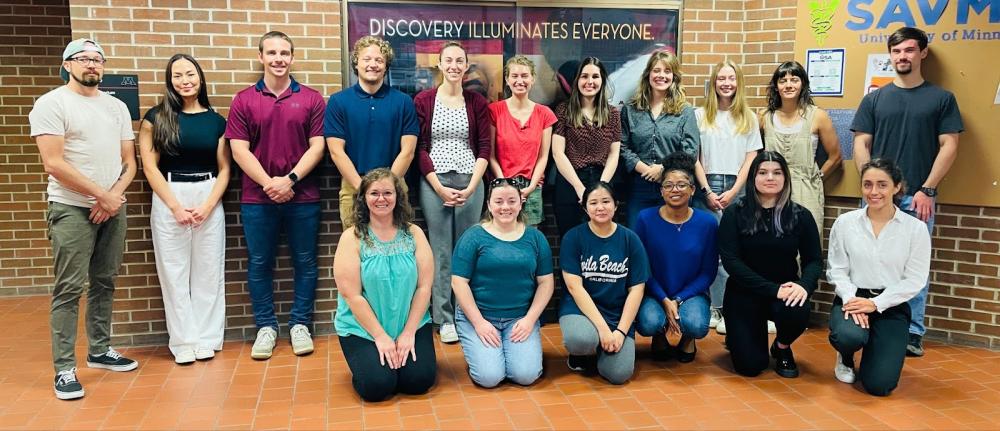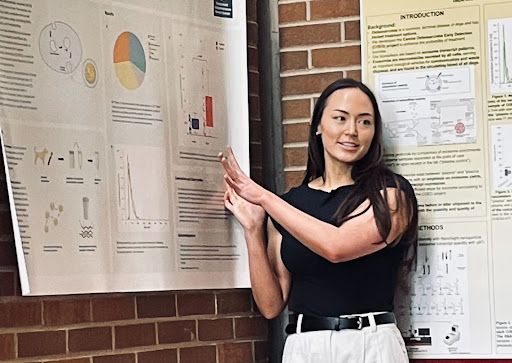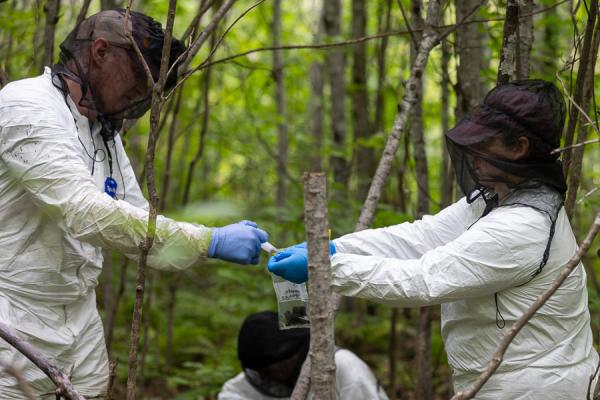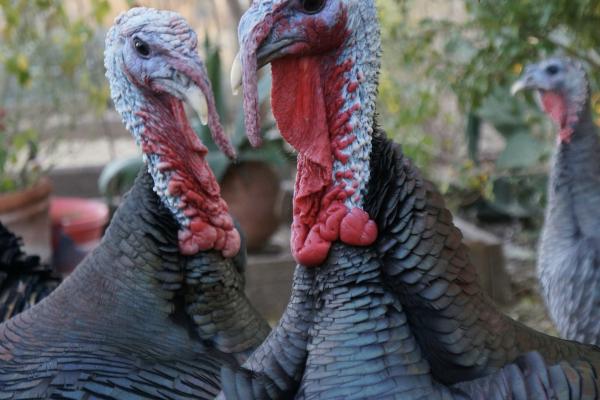Summer Scholars program wraps up as students look to the future
September 7, 2023

The 2023 Summer Scholars
Back row: Ryan Johnson, Courtney Labé, Ashton Amann, Riley Spielman, Bella Kappenman, Alaina Falck, Selja Pujagic, Kendall Blanchard, Olivia Groth, Kortney Dziedzic, Alexander Kennedy. Front row: Meagan Wojtyziak, Whitney Smith, Haley Rubia, Zynia Alvarez, Jessica Garcia, Irina Vasdev. Not Pictured: Laurine Bini (Nantes-Atlantic CVM, France), Caroline Wilson (University of Georgia CVM), and Katherine Vedros (University of Minnesota CVM)
The 2023 Summer Scholars program wrapped up with the Veterinary Scholars Symposium, held this year in San Juan, Puerto Rico from August 3–5. The symposium, which gave participants the opportunity to share their projects and learn from top researchers in their fields, capped off a resoundingly successful summer—both in terms of the research accomplished and the experience gained, according to the students and their mentors.
Their projects reflected the breadth and diversity of work conducted in labs across the College and University—from early detection of canine cancer, to disease transmission among white tailed deer, to the genetics of muscle disorders in horses, and much more. “Through these experiences students not only advance the research mission of the CVM but also gain a better appreciation of how scientific investigations translate into medical practice” says Dr. Mark Rutherford, Director of the CVM Summer Scholars program.
Incoming graduate student Ashton Amann spent the summer working in the lab of Casey Johnson, Assistant Professor of Medical Imaging in the Department of Veterinary Clinical Sciences. Amann’s project sought to compare the use of two forms of Magnetic Resonance Imaging (MRI) for the detection of Legg-Calvé-Perthes disease, a hip disorder in children that can lead to mobility issues and arthritis. His study found that quantitative MRI could offer a tool for early detection—which has been essentially impossible with existing methods, but would be a game-changer for how the disease is treated.
Amann will continue this work as a veterinary student researcher in Johnson’s lab this fall, gathering more data to validate the model he helped to develop over the summer. He said the program was a “perfect bridge to expand on what I know, get exposure to work I’m interested in, and get involved with someone I’d like to continue working with through my PhD. I was pretty blown away by how much fun I ended up having.”
DVM student Courtney Labé echoed those sentiments, noting that her lessons learned went far beyond hard skills. “Someone might have been teaching me how to do a western blot [laboratory test], but it always ended up being a much bigger experience than that,” she said. “Whether they’re talking about how they keep up with published papers, or what you should do at a conference, or advice for my research—it always ended up being more.”

Labé’s project looked at the concentration of exosomes—messenger particles that release from a cell vesicles that are released from cells and participate in cellular communication—in relation to the presence of cancer in dogs. Her study found that dogs with cancer generally had higher concentrations of exomes in their blood, suggesting that there’s potential for an exome-based blood test for detecting cancer. Her study found that dogs with cancer had a large range of exosome concentrations, suggesting that there are potential applications of exosome concentration within exosome-based diagnostics. However, other factors (such as age) could be at play, and more research is needed to determine if and how exome exosome concentrations are linked to cancer.
Labé, too, will continue that research under Dr. Jaime Modiano and Dr. Kelly Makielski in the Modiano Lab. “I feel really lucky to be mentored by Dr. Makielski,” said Labé, “because she’s a clinician–scientist, which is what I want to do—and I’ve never had the chance to work with someone like her. Being around so many researchers with different backgrounds and seeing how they all got here, it’s so much different than hearing about it in class.”
Many Summer Scholars go on to pursue PhD degrees and specialty training, leading to research careers that promote both animal and human health. If you would like to learn how to support a 2024 Summer Scholar, please contact CVM Senior Development Officer Mindy Means at (208) 310-3562 or [email protected]. Your financial support helps our students experience the rewarding world of veterinary research.


